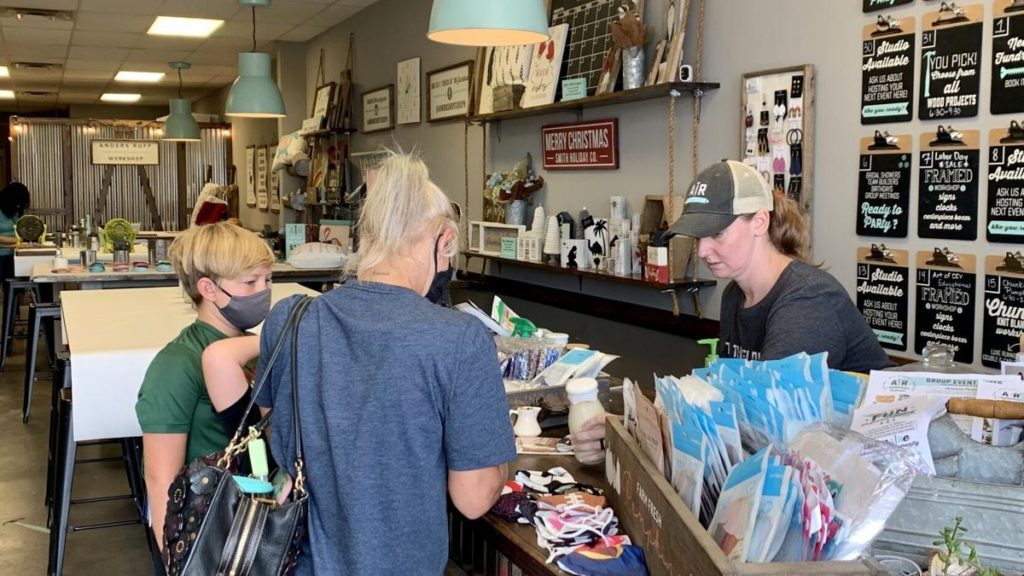
Businesses were significantly downsizing throughout the pandemic because the Government implemented various restrictions and changes they were implementing when it came to their work processes. People were no longer allowed to meet and interact in person since the Government was implementing rules to protect themselves and stay safe. They mandated wearing face masks in public, in most parts of the world. Additionally, using hand sanitisers and maintaining social distance were other tasks that were now mandatory.
They pushed for many changes in the functioning of businesses during the lockdown, while barely raising restrictions. The world, as we knew it, seems like a thing of the past. Whenever the number of people who caught COVID-19 spiked, they were looking for a chance to implement a national lockdown. With the number of lockdowns seen throughout the country, most businesses could not function the way they were in the past, which led to some issues relating to productivity.
The changes that companies were forced to make
Keeping up with remote working was quite challenging for many companies, especially without the systems, to immediately migrate to the internet. For the longest time companies would procrastinate about automation or using the software since they could always move in the future. However, through lockdowns and other changes, not working with people for a long time, meant that they needed machines and were pushing for them. Automation was playing a large part in the process since they were also depending on websites that were coordinating a basic segregation process and pushing their clients who needed assistance to the right department, based on the information that they provided. There were multiple other aspects of the work that they were handling that had to be automated and they were working on implementing those as well.
While all had no choice but to move to the internet in some capacity or the other, most of them had to wait for things to get better before they could start functioning in semi-productive levels till the pandemic got better, or they lifted restrictions.
Businesses were now conducting all their internal, as well as external meetings online since most were not open to meeting one another to reduce the chances of spreading COVID. People were allowed to leave their homes only for essential services, or medical requirements but even these tasks were no longer a priority since delivery services made the entire process a lot easier.
Everyone started getting their food, and other deliveries delivered to their houses. Most delivery companies were making changes to their delivery processes, such as automating signatures, using QR codes and digital handshakes, making sure they socially distanced and left packages at the door, to reduce their interaction with people.
In many countries like the UK and the US, the Government implemented various measures to allow companies to monetarily get through the virus. They provided information and even had schemes that people could avail of. Everyone had a much more relevant requirement for the internet, and increasing speeds was now a requirement since even some aspects of school were online.
Many people were also developing their hobbies since they now had a lot of time through the pandemic. A large population of people were now spending a lot of their time at home either because they were remote working or their companies were downsizing. They started working on making some changes to their houses with small renovations as soon as the Government began loosening up their restrictions. People were turning small parts of their homes into offices to concentrate and work on a few projects, which was the whole point.
The new norms that companies were now following
According to the Bureau of Labor Statistics, the official unemployment rate in the United States finally reached 7.9% in September, that accounts for 12.6 million people, which is not accounting for the vast number of people who did not register with the office yet. As of November, the unemployment rate in the UK was at 5% which is significantly higher than 3.5%, which is where it was at the beginning of the pandemic. There were predictions that the unemployment rate would increase to almost 10% by the end of the year, but the country managed to create employment
and mitigate it. Some of the people who were currently unemployed were not planning to get into the workforce until the economy stabilised, the last thing that anyone wants is to begin working at their new job, and the company shut down.
With the changes and the increase in the unemployment rates, employers were unsure how they were going to get through the hiring process. They were no longer even meeting the people they were hiring, in person, which was another challenge that they were working around. One of the most common requirements was now the background check. Employers wanted to make sure they were not working with people who had a criminal record. Employers and companies needed to find people who were a good fit for their companies, while also making sure that they would be there in the long run. Various jobs demanded different requirements when it comes to the background checks that they have to get through. Additionally, whether they were working and leading a team or just a part of the team made a big difference.
Additionally, the highest expenses that were not a primary requirement were now pushed to the backburner since people were no longer spending the way they were in the past. Until everyone could see a more stable future, expenses like purchasing a new vehicle, buying a house, or taking a mortgage were all pushed to the backburner. These changes meant that industries who were handling these requirements in the past were now struggling. Doctors and other people working within essential services were not getting any days off work and focused on the COVID pandemic, which meant that issues that were not major emergencies were pushed to the backburner.








